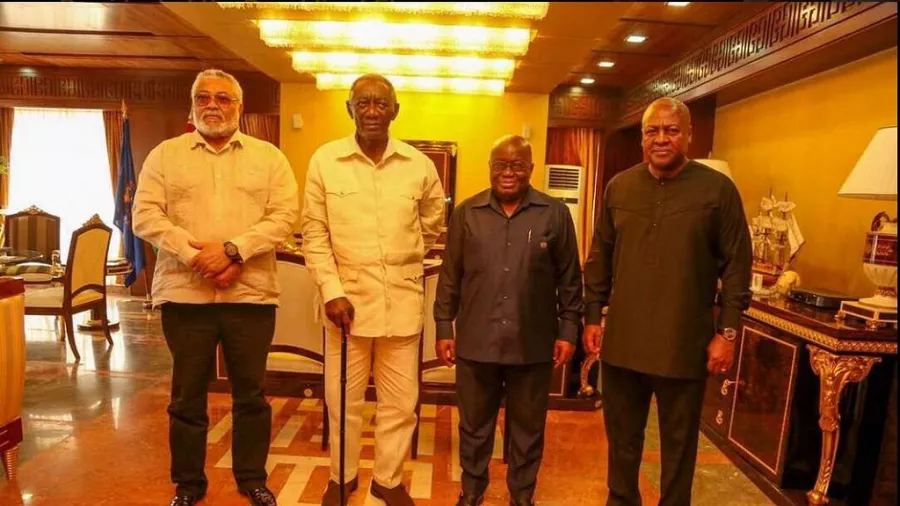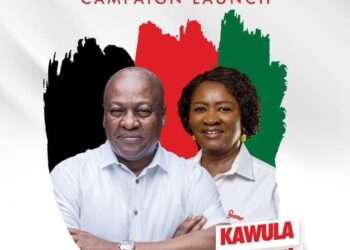Old age in politics reflects a broader trend seen in many countries, where experienced, older individuals often hold significant political power and influence. This phenomenon, also applicable in Ghana is rooted in several factors, including the respect traditionally accorded to elders in Ghanaian society, the accumulation of experience and networks over time, and the sometimes slow pace of generational change in political institutions.
Ghana, like many other African countries, has a rich tradition of respecting elders. This cultural norm extends into the political arena, where older politicians are often seen as wise and deserving of leadership roles. Their long tenure in politics is sometimes viewed as an asset, bringing stability and continuity to governance.
However, this situation also presents challenges. Critics argue that an over-representation of older individuals in politics can lead to a lack of innovation and resistance to change. It may also hinder the political advancement of younger generations who are eager to contribute fresh ideas and perspectives to their country’s development.
Notable examples of older politicians in Ghana include former Presidents like Jerry John Rawlings, who was actively involved in Ghanaian politics until he died in 2020 at the age of 73, and John Agyekum Kufuor, who served as President from 2001 to 2009 and remained influential in politics beyond his presidency. The former President John Dramani Mahama, born in 1958 served as President from 2012 to 2017 and has continued to be active in politics, including running for Presidency again in subsequent elections. The current President as of my last update, Nana Akufo-Addo, born in 1944, also exemplifies this trend.
Moreover, the majority leader, Hon. Alexander Afenyo Markin criticized the opposition party, the National Democratic Congress for appointing an “O’lady” as the running mate for the 2024 election.
“It is the same old NDC. It is the same old John Mahama. Mr. Speaker, perish the thought, should he even get the opportunity he has only four years constitutionally. There would be no sense of urgency in him because he has nothing to lose. Even if you look at his choice of running mate, he could not get somebody that one could say that they are planning for the future. The person is over 70 years old, we have no succession plan. From day one, their government will be in crisis. They went to pick the very old person who could not perform at the Education Ministry.”
Hon. Alexander Afenyo Markin, Majority Leader
Despite the challenges they face, young people in Ghana have shown their potential to drive political change through youth-led movements. These movements have been instrumental in raising awareness about issues affecting young people and advocating for their rights and interests.
Examples such as the #FixTheCountry movement have demonstrated the power of youth mobilization in challenging the status quo and demanding accountability from political leaders. These movements provide hope for a more inclusive and representative political landscape in Ghana. The interplay between old age and politics in Ghana is complex. While experience and wisdom are valuable, there is also a clear need for renewal and inclusion of younger perspectives in governance. Balancing these dynamics is an ongoing challenge for Ghanaian society and its political institutions.
Need for Youth Empowerment in Ghanaian Politics
To address this challenge, initiatives such as mentorship programs and youth political participation campaigns have been launched to encourage greater involvement of young people in politics. These efforts aim to create a more diverse and representative political landscape that reflects the changing needs and aspirations of Ghana’s population. Ultimately, the success of these initiatives will depend on the willingness of older politicians to share power and mentor younger leaders, as well as the ability of young people to mobilize and engage in the political process.
One potential solution to this challenge is intergenerational dialogue and collaboration, where older and younger politicians work together to find common ground and address the needs of all segments of society. This approach can lead to more innovative and inclusive policies that reflect the diverse perspectives and experiences of different age groups. Ultimately, the success of Ghana’s political system will depend on its ability to adapt to changing demographics and societal norms, while also preserving the valuable contributions of its older leaders.
Intergenerational collaboration can also help to bridge the gap between traditional and modern values, creating a more cohesive and harmonious society. By working together, older and younger politicians can pave the way for a brighter future for Ghana.
Moreover, there’s an ongoing conversation within Ghana and indeed across Africa about how to balance this respect for elder leadership with the imperative for innovation, fresh perspectives, and more youthful engagement in politics. This includes discussions on setting age limits for certain political offices or creating more platforms for young people to participate meaningfully in political processes.
In conclusion, old age in Ghana’s politics highlights a cultural reverence for elder statesmanship alongside emerging debates on how best to integrate younger generations into leadership positions to ensure dynamic and responsive governance.
READ ALSO: 6 African Countries Receive $40 Million from World Bank





















